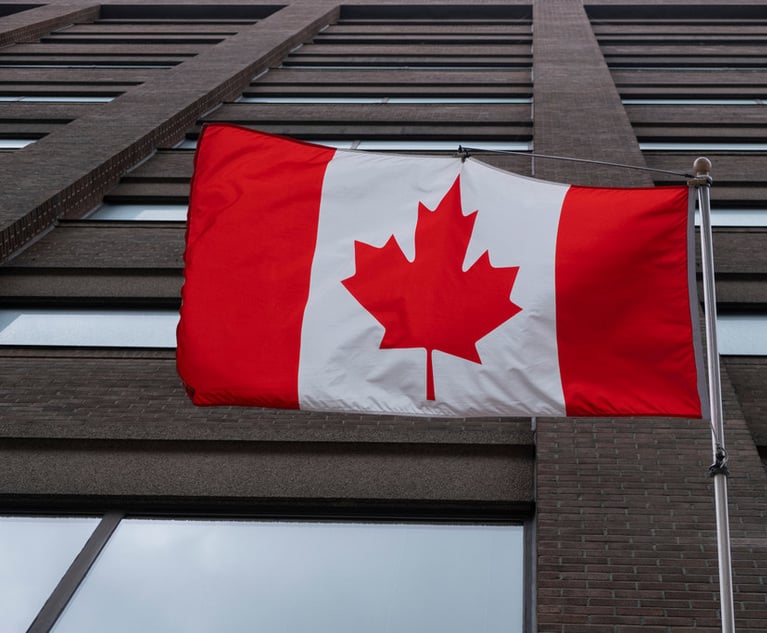Cleary and McDermott set for Korea openings as liberalisation gathers pace
Cleary Gottlieb Steen & Hamilton and McDermott Will & Emery are among a four firm line-up set to receive licences to launch in South Korea tomorrow (26 September), as the country pushes ahead with opening its legal market to international firms. Paul Hastings Janofsky & Walker and Squire Sanders will also receive approval on Wednesday to establish Foreign Legal Consultant Offices in Seoul, according to a statement from the local Ministry of Justice (MOJ).
September 25, 2012 at 07:12 AM
3 minute read
Cleary Gottlieb Steen & Hamilton and McDermott Will & Emery are among a four firm line-up set to receive licences to launch in South Korea tomorrow (26 September), as the country pushes ahead with opening its legal market to international firms.
Paul Hastings Janofsky & Walker and Squire Sanders will also receive approval on Wednesday to establish Foreign Legal Consultant Offices in Seoul, according to the local Ministry of Justice (MOJ).
The approval will take the number of firms authorised to open in the country to nine, with New York leader Simpson Thacher & Bartlett and US boutique Cohen & Gresser planning to open next month after receiving approval over the summer. Ropes & Gray, Sheppard Mullin and Clifford Chance were the first to set up bases in the region.
To date, as many as 16 firms have applied to work in Asia's fourth-largest economy, seven of which are still being considered.
Those who have submitted an application include DLA, Herbert Smith and O'Melveny & Myers, with Ashurst, Bird & Bird and Eversheds among those expressing an interest but not yet applying.
"We remain very interested in the Korean market," said Nick Seddon, Asia managing partner for Eversheds. "We are regular visitors to Seoul and we continue to service Korean clients from outside. The economic statistics make it a very important market. Also, many Korean companies are household names around the world, which is not necessarily the case in markets like Indonesia."
Ashurst's managing partner for Asia, Geoffrey Green, said his firm is currently putting together a four-lawyer team to staff a representative office in the Korean capital in the near future.
The team will be led by one partner, and will focus on outbound work from Korean clients into Australia and India.
"Korea is important because it is a developed market with sophisticated users," he said. "These users will be significant because they are continuing to spend money outside of the domestic market."
The opening up of South Korea's legal market to foreign firms followed the ratification of a free trade agreement (FTA) with Europe, by the European Parliament in February last year.
The long-awaited FTA, which was initially signed at the EU-South Korea summit in Brussels in October 2010, set out a timescale for foreign law firms to open offices and work in the country.
Together with the legislation set out by the South Korean Government, it said liberalisation would be rolled out in three stages.
From July 2011, when the agreement was first ratified, EU-based law firms have been allowed to open representative offices in South Korea and to advise on non-Korean law.
The second stage will run from July 2013, when firms will also be able to enter into co-operative agreements with Korean firms and advise on legal issues involving a mixture of domestic and foreign law.
As of July 2016, liberalisation will enter its third and final stage, permitting EU firms to invest in local firms and to recruit Korean lawyers.
This content has been archived. It is available through our partners, LexisNexis® and Bloomberg Law.
To view this content, please continue to their sites.
Not a Lexis Subscriber?
Subscribe Now
Not a Bloomberg Law Subscriber?
Subscribe Now
NOT FOR REPRINT
© 2024 ALM Global, LLC, All Rights Reserved. Request academic re-use from www.copyright.com. All other uses, submit a request to [email protected]. For more information visit Asset & Logo Licensing.
You Might Like
View All

Big Four Japanese Firm Mori Hamada Launches Foreign Joint Law Enterprise, Joins Rebrand Drive


Cox & Palmer to Merge with Benson Buffett in St. John’s, Canada’s Easternmost City
2 minute readTrending Stories
Who Got The Work
Michael G. Bongiorno, Andrew Scott Dulberg and Elizabeth E. Driscoll from Wilmer Cutler Pickering Hale and Dorr have stepped in to represent Symbotic Inc., an A.I.-enabled technology platform that focuses on increasing supply chain efficiency, and other defendants in a pending shareholder derivative lawsuit. The case, filed Oct. 2 in Massachusetts District Court by the Brown Law Firm on behalf of Stephen Austen, accuses certain officers and directors of misleading investors in regard to Symbotic's potential for margin growth by failing to disclose that the company was not equipped to timely deploy its systems or manage expenses through project delays. The case, assigned to U.S. District Judge Nathaniel M. Gorton, is 1:24-cv-12522, Austen v. Cohen et al.
Who Got The Work
Edmund Polubinski and Marie Killmond of Davis Polk & Wardwell have entered appearances for data platform software development company MongoDB and other defendants in a pending shareholder derivative lawsuit. The action, filed Oct. 7 in New York Southern District Court by the Brown Law Firm, accuses the company's directors and/or officers of falsely expressing confidence in the company’s restructuring of its sales incentive plan and downplaying the severity of decreases in its upfront commitments. The case is 1:24-cv-07594, Roy v. Ittycheria et al.
Who Got The Work
Amy O. Bruchs and Kurt F. Ellison of Michael Best & Friedrich have entered appearances for Epic Systems Corp. in a pending employment discrimination lawsuit. The suit was filed Sept. 7 in Wisconsin Western District Court by Levine Eisberner LLC and Siri & Glimstad on behalf of a project manager who claims that he was wrongfully terminated after applying for a religious exemption to the defendant's COVID-19 vaccine mandate. The case, assigned to U.S. Magistrate Judge Anita Marie Boor, is 3:24-cv-00630, Secker, Nathan v. Epic Systems Corporation.
Who Got The Work
David X. Sullivan, Thomas J. Finn and Gregory A. Hall from McCarter & English have entered appearances for Sunrun Installation Services in a pending civil rights lawsuit. The complaint was filed Sept. 4 in Connecticut District Court by attorney Robert M. Berke on behalf of former employee George Edward Steins, who was arrested and charged with employing an unregistered home improvement salesperson. The complaint alleges that had Sunrun informed the Connecticut Department of Consumer Protection that the plaintiff's employment had ended in 2017 and that he no longer held Sunrun's home improvement contractor license, he would not have been hit with charges, which were dismissed in May 2024. The case, assigned to U.S. District Judge Jeffrey A. Meyer, is 3:24-cv-01423, Steins v. Sunrun, Inc. et al.
Who Got The Work
Greenberg Traurig shareholder Joshua L. Raskin has entered an appearance for boohoo.com UK Ltd. in a pending patent infringement lawsuit. The suit, filed Sept. 3 in Texas Eastern District Court by Rozier Hardt McDonough on behalf of Alto Dynamics, asserts five patents related to an online shopping platform. The case, assigned to U.S. District Judge Rodney Gilstrap, is 2:24-cv-00719, Alto Dynamics, LLC v. boohoo.com UK Limited.
Featured Firms
Law Offices of Gary Martin Hays & Associates, P.C.
(470) 294-1674
Law Offices of Mark E. Salomone
(857) 444-6468
Smith & Hassler
(713) 739-1250







